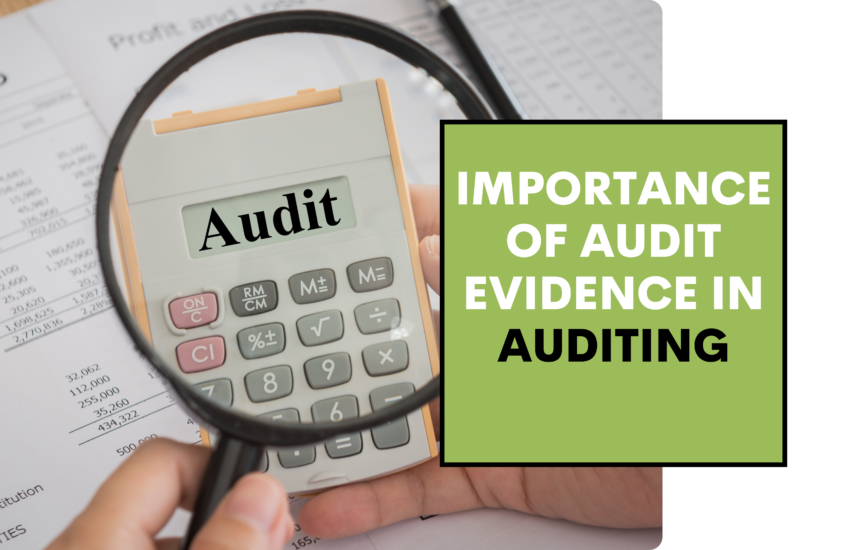Introduction:
Auditing is a logical process. An Auditor is called upon to assess the actual situation, review the statement of accounts and give an expert opinion about the truth and fairness of such accounts. This he cannot do unless he has examined the financial statements objectively. Objective examination means critical examination and scrutiny of the accounting statements of the undertaking with a view to assess how far the statements present the actual state of affairs in the correct context and whether they give a true and fair view about the financial results and state of affairs. An opinion founded on the basis of some documents which are not kept for future reference may amount to an opinion formed with a reckless and negligent attitude which might thereby lead to loss of professional standing and prestige.
It has also become a universally accepted standard for auditing to collect sufficient, appropriate, competent, and valid evidence before expressing an opinion about the fairness of the financial statements of his client.
Audit evidence:
Audit evidence may be defined as the information used by the auditor in arriving at the conclusion on which the auditor’s opinion is based. It includes both information contained in the accounting records unlying the financial statements and other information.
Importance of Audit Evidence:
Audit evidence is important because it is the information that an auditor gathers to form his audit opinion about an organization’s financial statements and/or internal control environment.
Audit evidence has assumed much importance in auditing all over the world because not only the shareholders even others place reliance on the audited Financial Statements. Further, Banks, other financial institutions, Government Bodies and the client’s management recognize auditor’s opinion as true and fair.
Auditors use a number of audit procedures to obtain audit evidence and they frequently use a combination of audit procedures. These include observation, inspection, confirmation, recalculation, re-performance, and analytical procedures, along with asking questions.
An auditor has to collect all the possible audit evidence to establish the truthfulness of the system to record these transactions. An auditor can verify the financial information on the financial statements by reviewing the financial information from the various data sources, including inventory reports, available receipts, and payments to suppliers.
An auditor collects audit evidence when he checks the entries in books of accounts with supporting documents attached to the vouchers. He gathers evidence that a transaction actually took place, it was entered into, it was paid/ received, etc. when he verifies the supporting documents. Based on this audit evidence auditor forms his opinion on financial statements (his opinion on books of accounts is expressed in auditors report).
Auditor’s opinion is based on the audit evidence obtained during the course of audit. Therefore, auditor should verify the transactions and gather audit evidence.
Duty of an Auditor:
The auditor of a company should make a statement in his report whether he has obtained all the information and explanation, which in his opinion are necessary for the conduct of the audit, and the financial statements give a true and fair view of the state of affairs.
It is the duty of an auditor to express his independent opinion on the financial statements furnished to him, the data produced by the accounting system alone (e.g., journals, ledger, manuals, worksheets) are not sufficient to base his opinion.
The auditor can form an opinion or come to a conclusion only after verifying all the competent evidences collected by him. This will certainly give him a confidence sufficient enough to enable him to be convinced of the basic truth or falsity of the financial data.
Standard of Internal audit – 320 on Audit Evidence:
Audit evidencerefers to all the information used by the internal auditor in arriving at the conclusion on which the auditor’s opinion is based. It includes both information collected from underlying entity records and processes as well as information from the performance of various audit activities and testing procedures.
Gathering appropriate and reliable audit evidence is a critical part of the internal audit process. This standard explains certain key requirements in the process of collection, retention and subsequent review of internal audit evidence.
The Internal auditor shall obtain sufficient and appropriate audit evidence which can form the basis of audit findings and allow reliable conclusions to be drawn from those findings. Evidence collected through various audit procedures shall be complementary and relevant to the objectives of the audit procedure conducted.
The evidence shall be obtained from reliable sources with consistency between various evidence collected.
All audit evidence collected shall be recorded and the internal audit function shall maintain a written process explaining and the manner in which audit evidence is to be gathered, reviewed, documented and stored as per standards of quality and in conformance to the standards on internal audit.
Conclusion:
At last, we can conclude that an audit can be considered as one of the most intriguing highlights within an organizations’ fiscal year. As a matter of fact, it can further be seen that numerous different steps and techniques can be utilized in order to approach this process.
The importance of audit evidence lies in the realms of ensuring that there is substantial information on the basis of which subsequent decisions can be based when it comes to audit evidence. In this regard, it is imperative that the audit report that is issued properly reflects groundwork that is covered during the audit process, so that the possibility of unprecedented outcomes can be minimized to a great extent.


I really like sumarized content